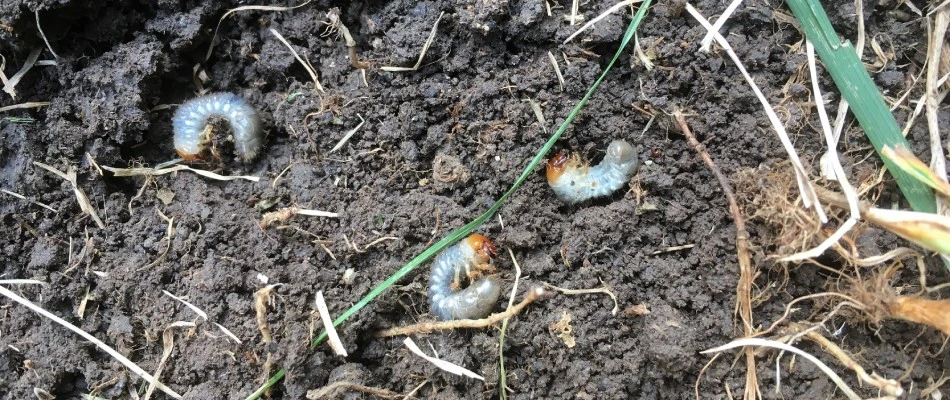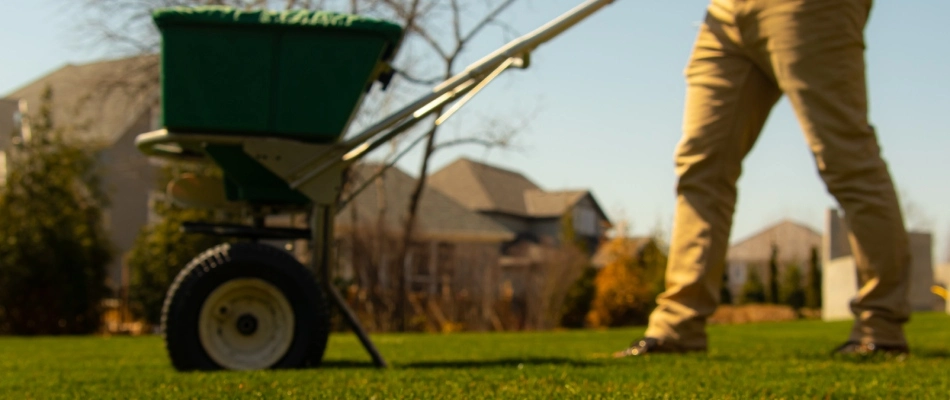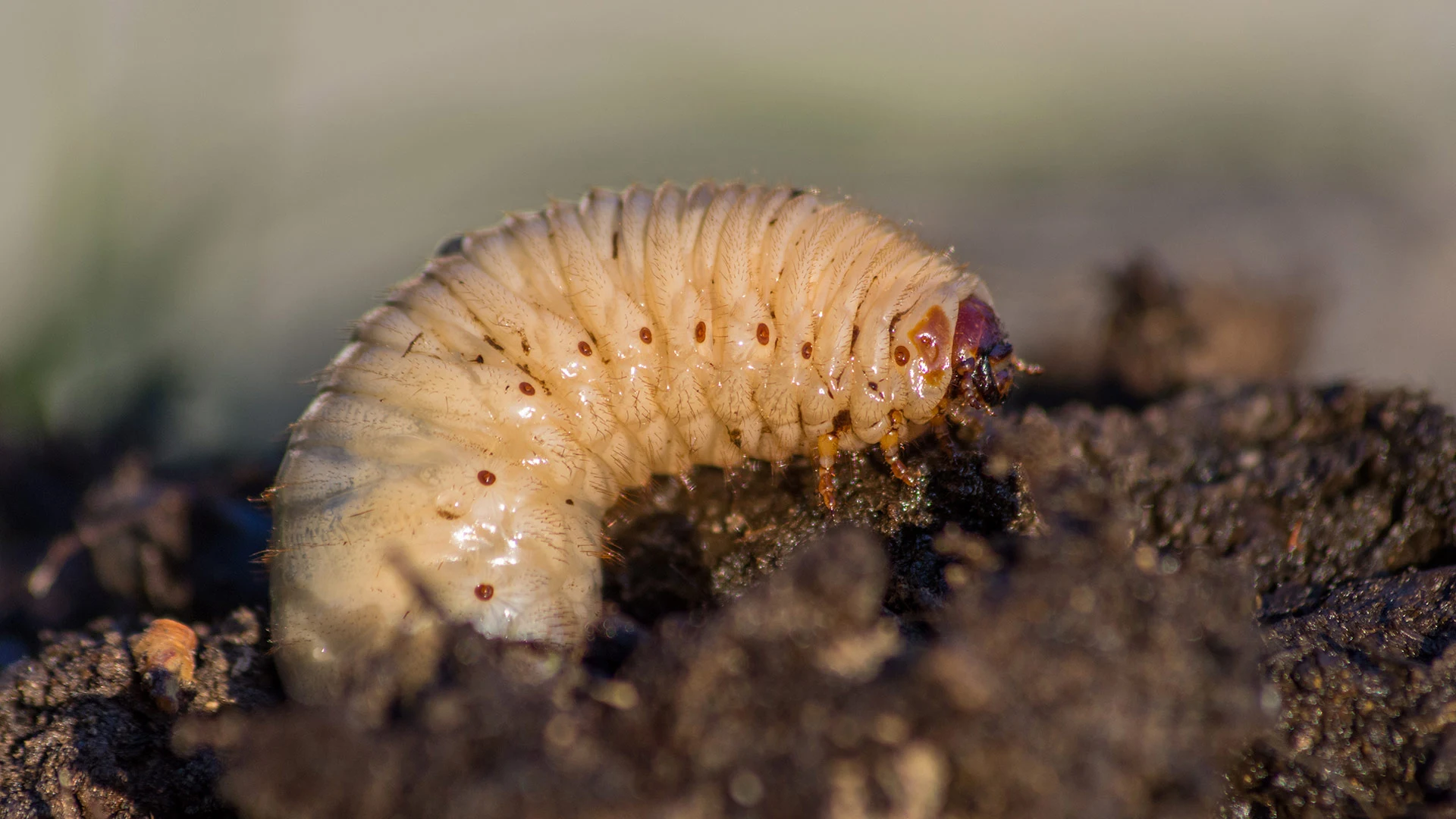Several species of beetles in Kansas can lay eggs in your lawn in the early summer. Then, when the larvae hatch later in the early fall, the grubs can begin to chew through the roots of your turf, causing damage. This can all be prevented by scheduling a preventative grub control treatment. During the treatment, professionals apply an extremely effective insecticide on your lawn to eliminate grubs before they have a chance to start feasting on the roots of your lawn. Don't skip out on a preventative grub control treatment because if you do and grubs infest your lawn, you'll have to schedule a curative treatment to eliminate the infestation, and then you'll have to schedule lawn care services to help your lawn recover.
Grubs are beetle larvae that eat through the roots of your grass.

Grubs are the larvae of different species of beetles and they are commonly found in Kansas. In early summer, the female beetles will begin to deposit their eggs in your lawn. When these eggs hatch around August, the larvae will begin to feed on the roots of your grass to reach the next stage in their life cycle. You can distinguish grubs from other types of insects because they look like small worms with legs and curl up in the shape of a "C".
Grubs are detrimental to the health of your lawn because they chew through the roots of your turf. During a grub infestation, your lawn can develop brown areas of grass, feel spongy, and even lift up like a carpet. This happens because the grass is dying as the grubs eat its roots, severing your turf's main artery to resources and nutrients.
Common species of grubs in Kansas include Japanese beetles and masked chafer beetles.
Preventative grub control will prevent grubs from infesting your lawn.
Female grubs, like many insects, follow an annual schedule and lay eggs in the early summer. A preventative grub control treatment is applied around this time in early June to eliminate grubs before they hatch and infest your lawn. The treatment is typically applied once using a highly effective pesticide to prevent the grubs from hatching and feeding on the roots of your grass. Applying the grub control before the larvae hatch in early fall can stop the grubs from damaging your turf.
If you skip preventative grub control, you may need to schedule curative treatments and lawn care services.

If you skip preventative grub control and end up with a grub-infested lawn, you will need to schedule a curative treatment to eliminate the infestation. While a curative grub control treatment can eliminate the grubs from your lawn, it can't reverse any damage that they caused. This means that you'll also have to invest in lawn care services to help your lawn recover from the grub damage. Some treatments you would want to schedule to help your lawn recover from grub damage would be fertilization treatments to give your lawn the nutrients it needs to thrive and aeration to create channels in your lawn that nutrients and other resources can use to reach the roots of your grass.
Call us today to schedule our preventative grub control service!
If you are concerned about grubs, call us today at (913) 209-3320 to schedule our preventative grub control service to prevent these pests from chewing through the roots of your turf. At Green Again Lawn, our professionals will apply a highly effective insecticide at the beginning of summer to eliminate grubs before they become a problem. We provide our stellar service to residential, HOA, and commercial properties in Shawnee, Overland Park, Lenexa, and nearby areas in Kansas.




Comments (0)
Thanks for your comment!
Thanks for your feedback! Your comments have been successfully submitted! Please note, all comments require admin approval prior to display.
Error submitting comment!
There is a problem with your comment, please see below and try again.